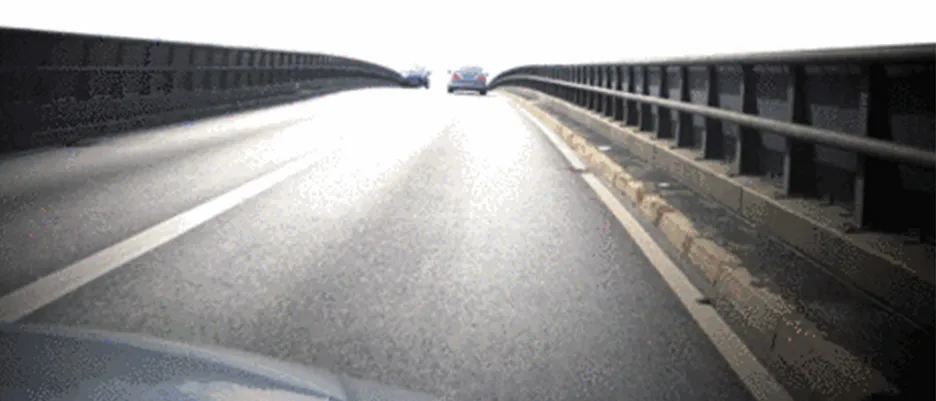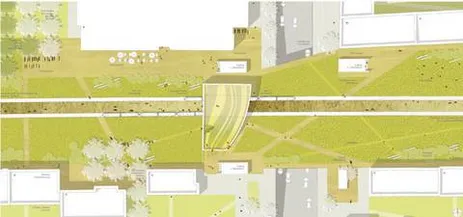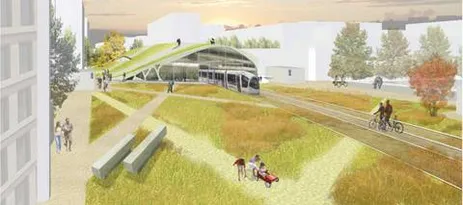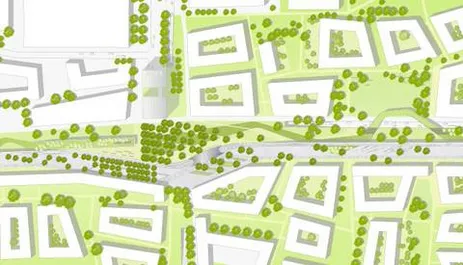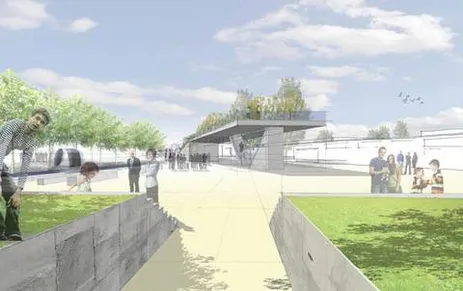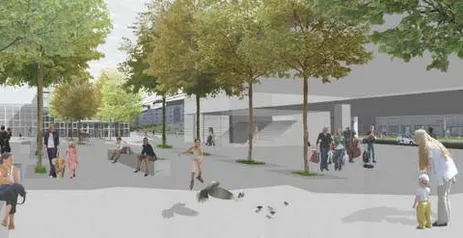Electric Avenue
Bachelor´s Thesis, B.Sc. Landscape Architecture and Planning, Summer Semester 2011
Master Project Landscape Architecture
Topic
The development of electromobility as the future transportation technology for motorized individual traffic (MIV) has become more than a utopia, especially since the automotive industry crisis in 2009. However, public discussions often focus on funding possibilities, technical implementation questions, as well as concerns and interests of lobbyists. Largely overlooked are the impacts on our cities. While future scenarios in literature, architecture, and film often depict nearly silent, densely traveled roadways with largely automatically regulated traffic flows, these scenarios are rarely mentioned in the context of discussions about electromobility. Are these scenarios realistic? What impact does the electrification of MIV have on the urban space adjacent to the roadways? What dimensions of road space can we expect in the future? What potentials arise from this transformation?
Task
As part of the Master's thesis, various scenarios and visions (from science fiction to architectural avant-garde) will be researched and analyzed. Additionally, with the support of other departments and scientists at TUM (Technical University of Munich), a scenario will be developed to illustrate how the electrification of MIV and the associated infrastructure could impact the urban context.
These considerations will be discussed and formulated through planning at the example of the Frankfurter Ring in Munich. This is a location that currently presents itself as a monofunctional transportation landscape, primarily characterized by noise and exhaust emissions that have a negative impact on the adjacent urban space and almost completely exclude the use of adjacent open spaces. It's a mobility corridor typical of many major cities, largely characterized as generic and interchangeable.
What potentials exist in this context, and what urban changes could take place? These considerations need to be explored and developed at the specific location, following a research-oriented design approach.
Supervision
Prof. Regine Keller, Dipl.-Ing. Doris Grabner, Dipl.-Ing. Thomas Hauck
